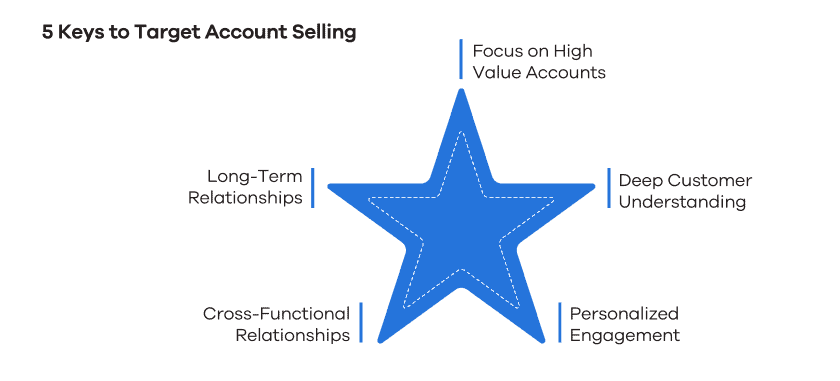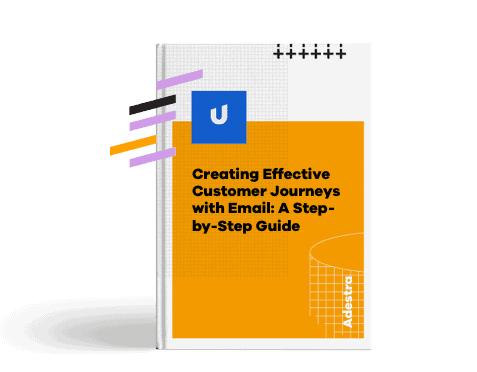What is Target Account Selling (TAS)?
Target Account Selling (TAS) is a B2B sales strategy focused on identifying and pursuing high-value customer accounts with the greatest potential for generating revenue. Instead of a broad, shotgun approach, Target account selling emphasizes a personalized and targeted engagement with specific businesses or organizations that perfectly fit your ideal customer profile (ICP).

How does Target Account Selling differ from traditional selling?
Altify has been around since the beginning of target account selling. Indeed, we shaped the category, with target account selling methodology baked into our software solution since the beginning. Although our software has evolved overtime to simplify selling in an increasingly complex business environment, today our target account selling solution still follows the key characteristics of target account selling. These principles are as follows:
Key Characteristics of Target Account Selling
- Focus on high-value accounts: Target account selling prioritizes accounts with significant revenue potential. This strategy is most effective for sales organizations focusing on large, complex sales processes where there is much to gain from winning a deal over the long-term as opposed to just a transactional sale.
- Deep customer understanding: Target account selling focuses on truly understanding the customer’s unique business challenges and goals. This requires in-depth research and two-way conversation with the buyer to uncover an accounts’ needs, challenges, and buying processes.
- Personalized engagement: Leveraging the power of an entire revenue team, target account selling helps sellers execute on tailored sales and marketing efforts to address specific account pain points in a way that would be impossible for a lone seller to achieve on their own.
- Cross-functional collaboration: Of course, in order to collaborate and execute on these tailored plans, revenue teams need to work closely across roles and functions to deliver unparalleled buying experiences for their customers. This includes close cooperation between sales, marketing, and customer success teams.
- Long-term relationships: Finally, target account selling puts the relationship at the heart of the deal where sellers seek to build strong, lasting partnerships with key decision makers in accounts.
The problem with lone wolf selling
In a world without a targeted and strategic approach to selling, it’s much too common for sellers to simply gain a primitive understanding of an account before formulating a proposal, and shooting that proposal off to a desired customer, only to move on to the next one.
Lone wolf sellers, or those sellers largely acting alone, have a tough time standing out from the crowd in a hyper competitive business landscape. This is due to a fundamental change in the B2B sales space that has proven that lone wolf sellers and transactional sales approaches are largely out of place in a modern, B2B selling motion – one that prioritizes relationships over all other aspects of a sale.
The world has evolved and left lone wolf sellers behind.
Here’s why lone wolf selling doesn’t cut it anymore.
The primary reason is that buying groups have evolved beyond one wolf sellers. What are buying groups? Buying groups are essentially groups of decision makers within accounts responsible for a purchasing decision. There are many reasons why buying groups have become instrumental to the purchasing decision a large enterprise makes, and also explains the evolution of the revenue team. It takes a team to sell to a team.
Along with the challenge of attempting to concur buying groups, here’s why it takes an entire team to close a deal:
Time with buyers is slipping and every interaction counts
Although target account selling is by no means a new topic, as you can see recent evolutions in how B2B selling gets done have made it only more relevant, not less. One of those advancements is in the digital revolution and the selling/buying journey.
Today, buyers are spending less time with sellers face to face, and relying on independent research. This research is gathered via digital channels, which can be influenced by the marketing team (and better help the seller). While this points to the importance of digital marketing and how that ties into the revenue team, it also impacts the importance of making the most out of each and every interaction with the buyer.
A lone wolf seller will find it hard to deliver on everything that needs to be delivered during these interactions and will often lose out to a seller with more resources at his/her disposal.

Target Account Selling means leveraging the entire revenue team
As important as it is for your sales team to take a targeted approach to their key accounts (a defined list of accounts that are likely to be closed), it also takes an entire team approach to successfully grow revenue in accounts. This means having full coverage over every aspect of the buying journey – bringing in executive sponsors when needed, collaborating with customer success and marketing teams over plans to best address customer needs, and also ensuring that you are armed with the content you need to stand out from the competition when attempting to tackle especially challenging accounts with large buying groups.
Without the revenue team, you simply cannot function at peak performance in target account selling.
Fundamental components of the revenue team include
- Sales
- Customer success
- Marketing
- Executive leadership